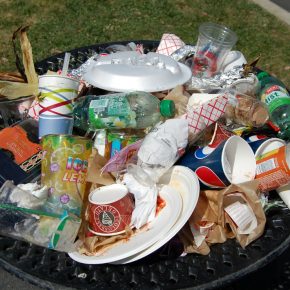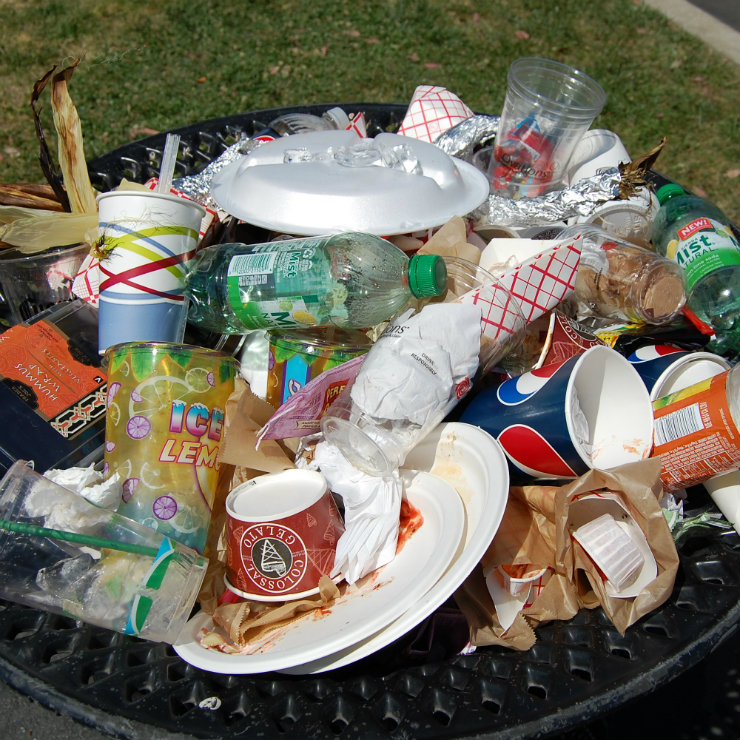
(Kevin Krejci, CC BY)
On May 2018, the European Commission (EC) reported that the EU member states adopted “a package of ambitious measures that are supposed to make EU waste legislation fit for the future, as part of the European Union’s wider circular economy policy”.
Prevention comes first
According to the EC, the new regulations put special emphasis on waste prevention and introduce goals for minimal levels of food waste and marine debris. They also provide that the amount of recycled municipal waste should increase to 55 per cent by 2025, to 60 per cent by 2030 and to 65 per cent by 2035.
The EC established new, bolder targets for the recycling of packaging waste, plastics, wood, ferrous metals, aluminium, glass, paper and cardboard. It also recommends the introduction of new requirements for separate collection. By 2022 a separate collection of hazardous waste from households should be introduced, by 2023 of bio waste and by 2025 of textiles.
Producers will be responsible for their waste
The European Commissioner for Environment, Maritime Affairs and Fisheries, Karmenu Vella stated: “The final approval of new EU waste rules by the Council marks an important moment for the circular economy in Europe. Our main task now is to ensure that the promises enshrined in this waste package are delivered on the ground”.
The newly introduced guidelines provide for even better utilization of economic instruments and other measures that are supposed to ensure the proper handling of waste. The EC will make producers responsible for their products when they become waste. It also ordered that “mandatory extended producer responsibility schemes be established for all types of packaging” by 2024.
Less landfilling, more recycling
The new rules are based on the European Commission’s proposal presented in December 2015 as part of the “Circular Economy package”. The EC claims that thanks to these regulations landfilling will be gradually phased out. In 1995, on average 64 per cent of municipal waste was landfilled in the EU and in 2000 the average had been reduced to 55 per cent, while the average recycling rate reached 25 per cent. In 2016, the landfilling of household waste in the EU dropped to 24 per cent, while the rate of recycling increased to 46 per cent.
The European Commission points out that landfilling of waste makes no sense in a circular economy and can lead to the pollution of water, soil and air. Therefore, by 2035 the amount of landfilled municipal waste must be reduced to 10 per cent or less of the total amount of municipal waste generated.


